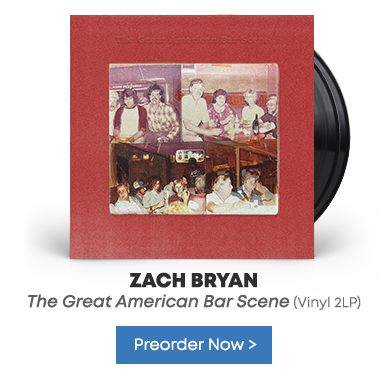A new Arcade Fire album is something of an event. In this era without many guitar heroes, the collective remains one of the few respected rock bands to warrant arena-sized crowds. Understandably, anticipation has remained high for the group's Everything Now, out today. After winning the Album of the Year Grammy for 2010's ambitious The Suburbs, a work that dives into the fragmentation inherent in urban sprawl, Arcade Fire has gradually turned down the guitars and emphasized more dance influences. The title track of the new set, for instance, leans heavily on disco. As a whole, Everything Now continues the Canadian band's exploration of the atmospheric and weird. That doesn't mean the album doesn't carry bite. Here are five standout tracks from Everything Now.
"Creature Comfort"
Thematically, "Creature Comfort" is dark and somber, but appointed with hard-driving forward momentum – at least by the standards of modern-day Arcade Fire. It addresses thoughts of suicide, societal pressures, and how our own self-worth can be distorted by popular culture. Just as the song revs up, leader Win Butler sings, "God, make me famous," begging for the sort of recognizable notoriety seen as currency in our social-media-driven age. The work teems with contrasts. Synthesizers burrow deep into the night while an energetic guitar looks to the sunrise. Butler, meanwhile, comes on as a picture of frustrated determination. Creative and life partner Regine Chassagne contradicts him with excitedly high-pitched paranoia. The whole work appears to walk the line between resolve and instinct, and both emotions serve to heighten the tension since neither seems like the right solution.
"Peter Pan"
At first blush, "Peter Pan" seems like something of an anomaly for Arcade Fire. Clearly referencing the Walt Disney take on the fairy tale, the song becomes downright sweet when Butler sings, "Be my Wendy/I'll be your Peter Pan." Arcade Fire, after all, was never really known for being idealists. Yet this isn't purely for the dreamers. "Peter Pan" comes off as more of a lament, wondering what happened to hopeless romanticism. The production is thick and sticky – a booming, bassy snyth bounces up against an electro-infused reggae groove with triumphant horns and an assortment of electronic oddities. Arcade Fire hinted at such sounds in the past, but this track fully channels The Clash via Sandinista! In other words, it's the sound of a rock band continuing to look around the globe and into new technologies for inspiration.
"Good God Damn"
Late on the album, Arcade Fire delivers a showcase for both the guitar and Butler's ice-cold vocals. Only the former never really riffs or locks in. Instead, the instrument sketches circles around an increasingly funky bass and Butler's threatening-to-get-louder vocals. "Good God Damn" emerges as a work of compact intensity, with only the warm, bluesy production lessening the mood. Shades of the 70s echo throughout – think David Bowie at his most minimal – but the omnipresent anxiety proves relatively timeless. "You want to get messed up/When the times get rough?" Butler asks. As the tune unfolds and the band once again starts questioning a belief in faith (and a hope in the healing power of music), it all implies the despair isn't a passing fad.
"Chemistry"
Another cut that heavily delves into reggae, "Chemistry" features more of a jolly, upbeat, and celebratory feel than most of Everything Now. Handclaps and sportive call-and response-vocals indicate the island vibes are of a let's-have-a-good-time variety. Don't be fooled by the bounciness of the elastic horns, zippiness of the digital effects, or thrust of the guitars. "Chemistry," ultimately, feels a bit demented, dialing into infatuation at its most obsessive. While fitting into a long line of pop numbers that carry a "I'm going to make you love me" message, "Chemistry" gets friskier, louder, and more twisted as it develops. This isn't just an obsession; it's harassment. "Go to the city/Go to the store" Butler shouts, later adding, "I know you." Creepy.
"We Don't Deserve Love"
The album's one pure ballad, "We Don't Deserve Love" launches with a hint of early 80s synth effects. Stutter-step, programmed rhythms maintain that tone, but Arcade Fire begins bending the electronic flourishes, creating a sense of confusion. One can practically feel the dials and levers being tweaked, as if the synthesizers are being played like a bowed saw. Vocally, the arrangement reveals Butler at his most tender. He's singing a love song, even though the tune largely chronicles the disintegration of a romance. Behind all the synthetic haze, one can briefly hear a guitar strumming a country lament as the narrator asks a police office to not check his breath. It doesn't get more optimistic from there. The couple portrayed in the song has lost the ability to talk, touch, or even watch TV together. Often, Arcade Fire chronicles the disconnect between people and the culture at large. Here, the band dials down to illustrate the divide between two would-be lovers.
28th Jul 2017




































